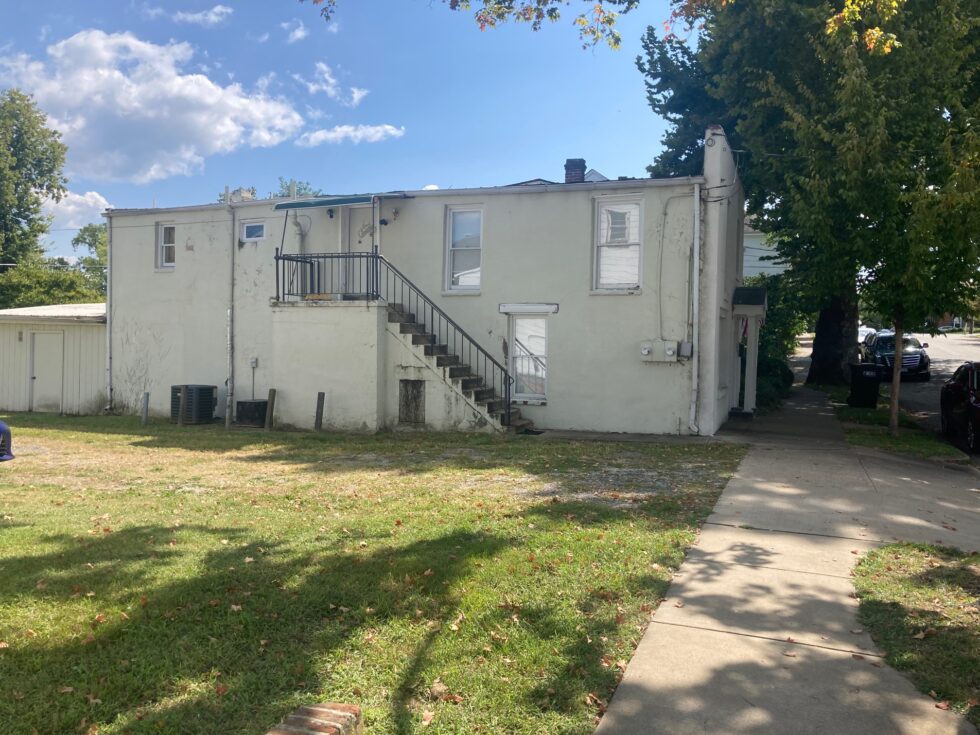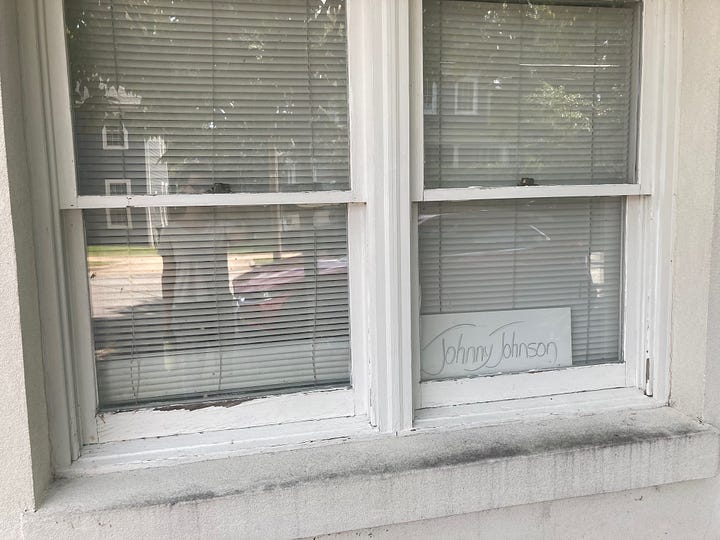
Johnson’s studio at 1311-1313 Charles Street has housed Black-owned businesses since the 1880s.
Editor’s Note: Welcome to History Thursday! Each week, we’ll be exploring a different historic building, site, or neighborhood in the region, hoping to shed some light on the many different stories they hold. We’re starting with historic “pocket” African American neighborhoods in Fredericksburg. Today, we look at Johnny Johnson’s studio in a pocket neighborhood on Charles Street.
Beloved local artist and teacher Johnny P. Johnson used the buildings at 1311-1313 Charles Street as a studio and to store and display his artwork from 1971 until his death in 2022. This site has been the home of Black-owned businesses stretching back to 1883, according to research prepared for the Johnny and Jean Johnson Estate by Danae Peckler, preservationist and architectural historian with the Historic Fredericksburg Foundation, Inc.
Johnson and his wife, Jean, lived across the street from what became his studio property for much of the 1960s. When they moved out of the city, Johnson rented the first floor at 1313 Charles to work out of, because he was still employed as an art teacher at James Monroe High School and at what was then Mary Washington College (where he was the first Black faculty member).
While the Johnsons lived on Charles Street, the buildings at 1313 and 1311 were owned by Dallas Kay Jr. and his wife, Virginia, and housed Kay and Bailey Funeral Home and Kay Cleaners, respectively.
Virginia Kay sold the entire property to the Johnsons after Dallas died in the late 1980s. Dallas Jr. had inherited it from his parents, Dallas, known as “Dal,” and Gussie Kay. Dal Kay was a businessman who had worked as a barber in the office of prominent Black doctor Urbane Bass, and also operated a “cleaning and pressing” laundry service.

Dal Kay already owned property in the 1300 block of Charles Street, and he bought 1313 and 1311 to house new ventures, including the funeral home. He advertised his businesses in the Free Lance-Star.
“The old reliable cleaner and presser is prepared to do your work in first class style,” reads one advertisement from 1915. “Panama and Palm Beach suits washed and pressed, 50 cents.”
In 1917, he announced his entry into undertaking: “Notice! I wish to announce to my friends and the public in general that I have engaged in the undertaking business and will be pleased to serve you at any time. Calls answered day or night.”
In addition to his businesses, Dal Kay managed a colored baseball team, the Giants, and was a deacon and choir leader at Shiloh Baptist Church (Old Site).
There was another Black-owned business on the Johnson studio property before Kay’s ventures—Charles Hunter’s Farmers Friend Plow Works. Hunter bought the property in 1883 from Thomas Knox and used it for stables and a pattern shop.
After Johnson bought the property in 1992, he received permission from the city’s Architectural Review Board to demolish the late-19th-century portion of the laundry facility but retain portions of its foundation.
The site as it is now reflects its association with Johnson and his artwork.
Census records show that the 1300 block of Charles Street was a majority Black neighborhood from at least 1900. Some of the trades represented among the residents from the 1900, 1910, 1920, 1930, and 1940 censuses were day laborer, wagon driver, seamstress, wash woman, “bell man (hotel),” carpenter, baker, creamery laborer, waiter, butler, children’s nurse, butcher, and domestic servant.
Next week’s edition will explore another house in this neighborhood—1309 Charles Street.
By Adele Uphaus
MANAGING EDITOR AND CORRESPONDENT
Email Adele


